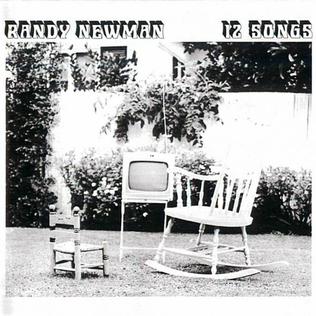12 Songs (Randy Newman album)
| 12 Songs | ||||
|---|---|---|---|---|
 |
||||
| Studio album by Randy Newman | ||||
| Released | April 1970 | |||
| Recorded | mid-1969 | |||
| Genre | Roots | |||
| Length | 29:51 | |||
| Label | Reprise | |||
| Producer | Lenny Waronker | |||
| Randy Newman chronology | ||||
|
||||
| Professional ratings | |
|---|---|
| Retrospective reviews | |
| Review scores | |
| Source | Rating |
| AllMusic | |
| Christgau's Record Guide | A+ |
| Encyclopedia of Popular Music | |
| The Great Rock Discography | 8/10 |
| Music Story | |
| MusicHound Rock | 3.5/5 |
| NME | 6/10 |
| Q | |
| The Rolling Stone Album Guide | |
12 Songs is the second studio album by American singer-songwriter Randy Newman, released in April 1970 by Reprise Records. It features a swampy style of roots music with introspective, satirical songwriting. "Have You Seen My Baby?", the album's only single, was released in May.
When 12 Songs was first released, it was well received and has since garnered retrospective acclaim from several critics.
According to Q magazine, 12 Songs demonstrated Newman's eccentric mix of traditional pop song structures and his sardonic, satirical humor.AllMusic's Mark Deming said although his sense of humor seemed more caustic than on his self-titled debut album, Newman's "most mordant character studies" on 12 Songs "boast a recognizable humanity, which often make his subjects both pitiable and all the more loathsome." In the opinion of Robert Christgau, American songwriting in general is often "banal, prolix, and virtually solipsistic when it wants to be honest, merely banal when it doesn't", but Newman's truisms on the album are "always concise, never confessional", and unique:
12 Songs received positive reviews from contemporary critics. According to Keith Phipps from The A.V. Club, Newman "began to gather a following beyond critics and fellow songwriters" with the album.Rolling Stone magazine's Bruce Grimes gave it a rave review when it was released, hailing the album as "the full emergence of a leading innovator in rock and roll". In The Village Voice, Christgau called it the best record of 1970, finding the songwriting, production, and performances superior and "more accessible than the great-but-weird album that preceded it".
...
Wikipedia
